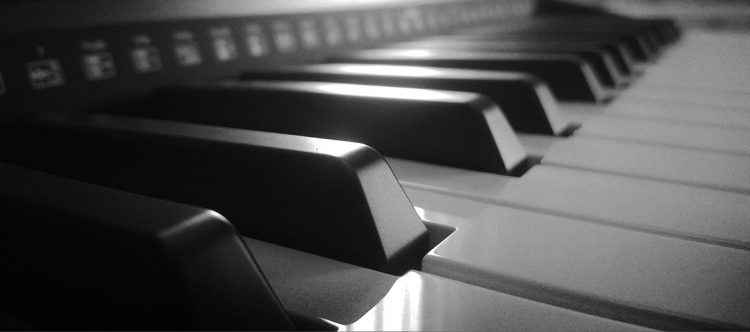New Music for Piano Four Hands—Works by Donald Wheelock, Lewis Spratlan, John LaMontaine, Daniel Asia, Matthew St. Laurent, and David Sanford. Dana Muller and Gary Steigerwalt, piano. Navona.
The works by six composers on a new Navona CD titled New Music for Piano Four Hands are more overtly modern in sound and more contemporary than Kuhn’s in the way they try to illustrate specific emotions and feelings rather than evoke them in listeners. But they are no less fascinating, and indeed the piano-four-hands sound itself, not very commonly heard in today’s classical music, is a major plus for the CD. Each composer here uses the abilities of Dana Muller and Gary Steigerwalt in different ways.
Donald Wheelock’s Mind Games (2017) is a set of five very specific humoresque-like pieces called “High Expectations,” “Panic,” “Cogitation,” “Reflection,” and “Abandon.” Although “Reflection” is somewhat underwhelming, the remaining movements are neatly illustrative of their titles and give the performers plenty of chances to excel as a duo – especially “Panic,” the most-dissonant of them all, and the perpetuum mobile “Abandon.”
Lewis Spratlan’s Dreamworlds (2015) is a highly intriguing attempt to elucidate the possible dreams of three figures who are as different as humans can be: St. Francis of Assisi, Hitler, and a nameless bureaucrat. The first movement includes some birdlike interjections along with fragments of Gregorian chant; it is obvious but effective. The second is even more obvious in its turmoil, misplaced power, and quotations from Beethoven and Wagner. The third is the most interesting, using a deliberately trivial theme, plus occasional chordal interjections of frustration, to limn the dream of a bureaucrat who cannot stand the repetitive work requirements of the job but must do them nevertheless.
John LaMontaine’s 1965 Sonata for Piano, Four Hands is the “purest” music here, in the sense that it is the work least illustrative of anything specific. It is a short work, three movements in 10 minutes, that gives the pianists plenty of chances to display their prowess in techniques ranging from Baroque-style polyphonic writing (the finale is a fugue) to jazz and serialism.
Daniel Asia’s Iris (2017), also a three-movement work that is sonata-like although not labeled as such, invites the pianists accurately to reflect the movement titles: “Jauntily,” “Slow, ethereal,” and “Impetuously.” But the music goes beyond those titles, and Muller and Steigerwalt are well aware of this. The first movement, for instance, repeatedly seems about to grow darker, and the second actually is on the dark side, although not so much depressive as it is thoughtful. The third is energetic and requires the pianists to pay close attention to each other’s movements and hand positions – and it lapses into occasional slower sections that interrupt the flow just long enough to get it going again.
Matthew St. Laurent’s Overture to a Lucid Dream (2017) is intended to be descriptive of an experience in which, aware that one is dreaming, one can control and modify the dream as it occurs. There is nothing especially dreamlike in the piece, but its increasing complexity may be taken to indicate the dreamer’s growing control over the dream world, and the quiet ending is an effective way to show awakening.
David Sanford’s The Silent Hearth (2018), which ends the CD, is an unusual and unusually evocative work. Based very loosely on Schubert’s overture to Fierrabras, harmonically although not in terms of tunes, it delves deeply into the piano’s lower register in an attempt to interpret a story about an old concert hall in Boston that is no longer used but remains, in disrepair, beneath a piano showroom. Whether the piece reflects its underlying story will depend on whether listeners know that tale. But heard strictly as a musical experience, the work is intriguing in its repeated use of extended silences juxtaposed with music that seems to arise from the depths and return there.
This CD as a whole is fascinating both for the variety of ways in which the composers explore four-hand piano music and for the high level of skill with which Muller and Steigerwalt interpret the material.
http://transcentury.blogspot.com/2018/11/penchant-for-piano.html
